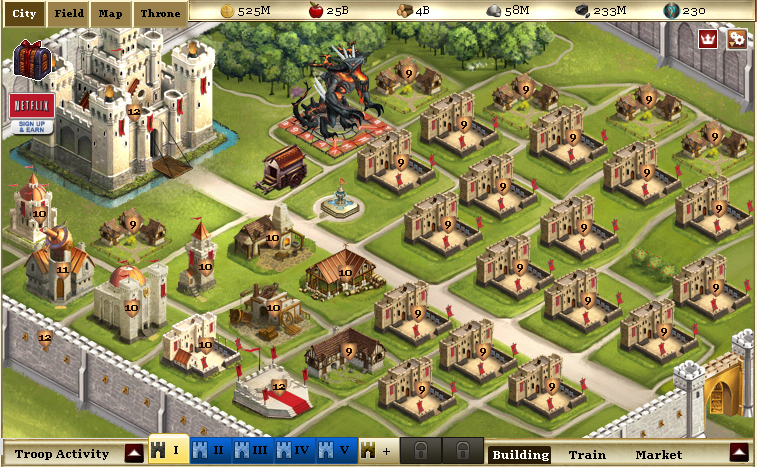GDC: Kabam on the creation of Kingdoms of Camelot
The founder of Kabam at GDC 2013 told how the company ported the box office hit Kingdoms of Camelot from PC to mobile platforms.
“Cross-platforming is very cool, it opens up a lot of opportunities for developers, but transferring a browser game to a mobile platform is also very difficult.”
Approximately with these words, one of the founders of Kabam, Michael Li, began his speech at GDC 2013, which is taking place these days in San Francisco. The lecture was called From click to tap: Creating Kingdoms of Camelot for mobile platforms. In it, Lee told how the company transferred the Kingdoms of Camelot web strategy to iOS and Android.

The company had a lot of problems with porting. Firstly, solid pieces of the original code were not at all suitable for creating a mobile version. Secondly, while the team responsible for the web version was based in the USA, the mobile game was made in China. So it was decided to make a standalone version of the game for iOS and Android from the web application.
Changes
It is clear that the general principles of the game have not changed when transferred to mobile rails, the main changes were in the details.
For example, the combat system has been greatly simplified, as well as some other elements. Kabam could not make a user-friendly UI for them, so this solution can be quite called a compromise.
But, yes, the main task that the team faced was to make it so that the players were comfortable working with the application, so that nothing would cause irritation.

“We focused on the first and second game sessions,” Lee said. – “You won’t see the loading screen in our game even with a bad connection.”
The reason lies on the surface – the game is constantly loading something. If it were necessary to sit and wait at every download, no one would play Camelot. The company also spent a lot of effort on optimizing the size of both its application and transmitted packets for HTTP requests.
“We used to think of such games as server-centric, but you should also use mobile devices as a computer, not just as a browser,” Lee said.
Quality
There is such a habit in the network – to release a game, and let your users test it. Everything is different in the mobile market.

“You can‘t run the program again here,” Lee said. – “When submitting an application to the App Store, its code should be as perfect as possible.”
For this reason, Kabam actively tested the project (conducted A/B testing). The company has also implemented a lot of software bookmarks into the mobile version code to control the UE.
Results
As a result, the development cycle of the mobile version, taking into account the expectations of the review from Apple, took significantly more time than the creation of a web application.
Another interesting discovery for the company was that mobile users consume content much faster than those who play on a PC. But this is easily explained by the fact that they can play anywhere and anytime, even 24 hours 7 days a week.
“You have to create games specifically for the mobile platform. You can’t just port it from the browser,” Lee summed up.